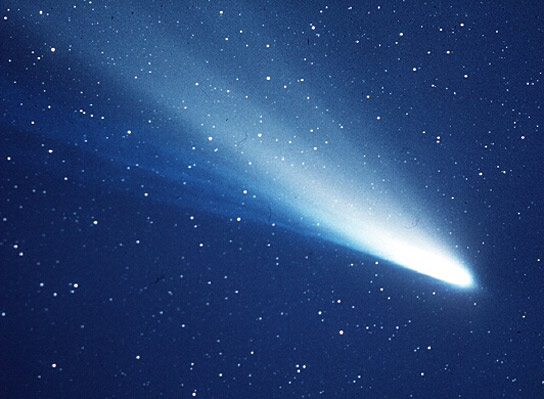
On the Isle only the men told stories. They would crowd around the fire, its flames roaring around the dry bark of a felled tree, and tell stories until the first blush of dawn in the horizon, each story more extravagant than the last. They looked like demons, Nala sometimes thought, with the fire reflecting in their wide eyes and their gestures magnified by the shadows till they reared over the crowd, their arms elongated to wings, their hands to claws.
Nala watched from the wooden seats placed around the fire pit in a protective ring, where all the women old enough to no longer be children sat. They were the moderators of the stories — a single smile from Inga, the village elder, would puff out the story-teller’s chest until he walked like a rooster, newly mated. A shake of the head, and the man’s voice would falter, until he was little more than a mouse amidst the stamping feet and soaring voices — and then he would disappear. Not forever; only until he could be sure that the next time he came to the fire, he would have a story that would please Inga, and the rest of the women.
Sometimes, they stayed away for a long time.
One night, a comet appeared on the horizon, and over the next few days it grew larger and larger until night was as light as day.
“We know what the comet is,” said the men.
“Tell us tonight,” said Inga. That night, a competition was held before the flames about who could tell the best story about the comet. Nala watched from the side, itching to speak, wishing the fear within her bones could be replaced with the excitement so evident in everyone else.
“The comet is made of a star dipped in silver,” one man boasted. “As the silver cools it falls through the sky, gaining speed and shine until it’s as luminous as the moon. When it passes by silver dust falls from its form, turning the air to jewellery that all the women will nag their husbands to acquire.”
Inga, and her council of women, blinked and nodded, and the man stepped aside, elated to not have displeased, but yearning for a smile.
“The comet is a large white bird, feathered with dying star and breathing fire in it’s belly,” began another.
Nala couldn’t listen any longer.
“It’s a giant rock!” she cried.
Only the crackle of the fire, and the strange, fizzing sound which was the comet could be heard. The comet was so bright it fought with the flames to light the faces turned in Nala’s direction — some were silver-glazed, others red. All were enraged.
“Only men can tell stories,” said one man, larger than the rest, with great tufts of hair on his chest.
Everyone drew in a breath as Inga stood.
“Nala, you must leave,” she said.
“But it’s true!” Nala said. “My grandfather told me that he saw a comet when he was a little boy. It fell into the ocean and made a wave so large it swamped the whole eastern part of the Isle!”
“She’s telling stories!” snapped another man. “Women can’t tell stories — they always lie!”
“As if the tales of your prowess are always steeped in truth,” cried his wife. She stood, as did a few other women, while others remained held in place by Inga’s glare.
“Women do not tell stories!” Inga cried.
“Why not?” Nala demanded. “Why can only the men tell stories?”
“Because we’re better at it,” one man said.
“Because we know how!” said another.
“I believe her,” said a third.
All eyes turned to a tall man with sad eyes. He met their gazes shyly, and then looked away. “My grandfather told me the same tale.”
“So did mine,” said a voice in the back of the crowd.
Nala edged away from the fire as the men began to argue among themselves, and the women began to shout, both sides jumping up and pushing accusing fingers at the other. They argued for so long, and so loudly, that they didn’t hear Nala screaming, begging them to notice that the comet had gotten closer.
At last, the fight between the men and the women turning violent, Nala turned and ran. She grabbed one of the rafts tied up on the shore and struck out for open water — paddling fast, and faster still, as the night lightened to almost painful brightness. The fizzing sound had turned to a roar, and though the water lapping Nala’s toes was cold sweat poured from her body from the heat of the sky.
WHOOMPH.
Nala’s raft tipped, and she fell headlong into the water. She fought the waves, which seemed intent on dragging her down, until finally her head popped out into the night which was now black and smelt of fire.
Nala took three huge breaths, and began to swim.
When she got back to the Isle, the burning smell on the wind intensified. It wasn’t hard to see why — the fire pit had been struck by the comet, flinging burning coals and branches into the trees. There they smouldered, holding an eerie vigil for the clicking, cooling, rugged comet that smoked gently amid the dying flames and mounds of black dirt in its crater.
Around the comet were bodies — most would never tell or listen to a story again. In a cottage a baby began to wail, shaken out of its sleep by the impact.
“I know what the comet is,” Nala said softly to herself. “It’s evil.”
COMMENTS
I told this story to my sister as we walked along the sea wall to Kits Beach. As I didn’t have a copy on hand, I had to recite it from memory. What was interesting is that, though I knew the story and stayed largely along the same storyline, I found myself adding little tidbits — who Nala was, why Inga was the village elder, etc. I also tried out a few tricky turns of phrase, one of which ran:
“… and the night that had been as light as day was now as dark as night…”
and which my sister quickly informed me was overwriting at its ripest. She also had questions, one being — why did Inga speak against Nala with the men? Wasn’t Inga a women and so, ergo, naturally on Nala’s side to have an equal speaking voice?
I then had to get into internalized sexism and the naturalization of patriarchal systems in (some) women who manage to rise to what little power women can in those kinds of societies. So that was fun. (Here is a good blog post by an Australian/American author Justine Larbalestier in which she addresses including historical/modern day sexism/racism in your novels/stories to prove a point and the problems associated with that if the writer isn’t careful.)
All in all, a cool assignment!
(P.S. I got the partial idea for this story from Nation by Terry Pratchett — though in the story, Mau’s island community is wiped out by a tsunami, bringing with it a British ship with a feisty parrot and a young girl).
WORKS CITED
Hynes, James. “The Ghost Girl and the Naked Savage.” The New York Times. The New York Times, December 5, 2008. Web. Accessed June 1, 2016.
Larbalestier, Justine. “Racism in the Books We Write.” justinelarbalestier.com. WordPress, September 5, 2012. Web. Accessed June 1, 2016.
NASA. Halley’s Comet. 1986. Space.com. Web. Accessed June 1, 2016.
